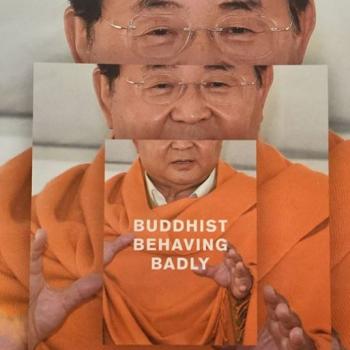
One of the most astonishing facts of the 21st century is the unprecedented rise in cosmopolitanism. Like never before in human history, each and every one of us is connected, or potentially connected, to literally billions of other people around the planet. We can even get news updates from people living beyond our planet.
It’s very true that poverty, lack of access to health, education, and technology are still major issues for humanity. Violence is still abundant, and with the rise in communication and population, there is no shortage of ‘breaking news’ about the latest tragedy. But it’s better now than it was in the 1980s; and it was better then than it was in the 1950s, which was better than the 1860s, and so on, indefinitely into human history.
Today I sit overlooking a street busy with foot-traffic. I overhear bits of conversations in dozens of languages. I share a living space with people from all corners of the earth. I’m not a rich businessman, I’m not royalty, but I am in touch with the world.
This contact, as Steven Pinker suggests in the video below, brings me face-to-face with the humanity of others in a way that my ancestors could hardly imagine.
And this makes, I would argue, for a necessarily, better, more peaceful world. Yes, there are those who are so racist, fundamentalist, etc-ist, that no amount of conversation or contact with others will break down their biases. And these very same ‘haters’ will tell you that they have met the ‘Other’ – so they know the ‘horrible truth’ of this Other. But even though the hateful are generally the loudest people around, they are also increasingly marginalized.
I’ve written about Pinker before: Despite Buddhist Beliefs: The world is becoming more peaceful (Oct 12, 2012), and Modernism, Optimism, and Naivety (Sept 20, 2011). I think his work is brilliant, and I highly recommend spending some time with his writings or finding some videos of him (the first link, “Despite Buddhist…” has a great discussion/debate between him and Robert Kaplan, the author of The Revenge of Geography: What the Map Tells Us About Coming Conflicts and the Battle Against Fate).
As many of you know, my work seeks to draw into dialogue some of the great traditions of the West with Buddhism. My current work is on Kant, the great Enlightenment thinker, but I’m also doing some work on a yet-to-be-published paper on Ignatian (Catholic) Spirituality.
Here, in looking broadly at human history, I think Buddhists could learn from Western thinkers.
Though many Western Buddhists are perhaps ignorant of the pessimism found in early texts – texts that speak of an age of decline – they are nonetheless there, and the idea that we are in an age in which awakening is exceptionally difficult exists in traditional Buddhist cultures (I’ve personally heard it expressed by Japanese and Thai Buddhists and read it in Pali suttas. It may be interestingly absent from Tibetan or other forms of Buddhism, but I’m not sure.).
Certainly many Western thinkers had a dismal view of humanity’s future as well: namely an eventual (and sometimes imminent) end of history itself. However, as Europeans became more adventurous, encountering people from around the world, some developed a new view on history, a view that would come to be known as the Age of Enlightenment. Of course this age was utterly disastrous for many of those people that Europeans encountered – we cannot forget that. And we also cannot forget that Asia had already gone through several Ages of Enlightenment, when trade and travel brought distant cultures, ideas, and technologies half-way around the world. I’m being a bit Eurocentric here only to draw attention to Kant (1724 -1804), who lived and wrote in the midst of this European Age of Enlightenment.
Kant was an amazingly cosmopolitan man, who, as it happens, never left his home city. He also expressed many of the prejudices against women and non-Europeans that were common to his time, so we mustn’t idealize his every word or try to make too great a hero out of him (though I suspect this isn’t really a problem). But he did have great hope, sometimes even with the sort of boom and bluster that anyone who has studied Kant would hardly believe came from his hand:
Was ist Äufklarung?
Enlightenment is man’s release from his self-incurred tutelage. Tutelage is man’s inability to make use of his understanding without direction from another. Self-incurred is this tutelage when its cause lies not in lack of reason but in lack of resolution and courage to use it without direction from another. Sapere aude! “Have courage to use your own reason!”- that is the motto of enlightenment.
He also wrote a treatise laying out a future that he hoped would lead to Perpetual Peace. His proposals, obviously well ahead of their time, would eventually become realized in the creation of the League of Nations and the United Nations.
One of Kant’s central theses was that each human being has dignity worthy of our respect, a respect that arises out of our sense of morality itself. All other feelings, for Kant, arise out of inclination or fear (in Buddhism, think of greed and aversion). We develop this respect over time, through our encounters with others. The precise details are a bit convoluted (in Kant as in other philosophies/psychologies/etc), but the idea is that at first we see other beings purely in terms of what pleasure they can give us or, alternatively, in terms of the pain they might bring. So we classify people into two simple categories of good and bad. But with a little experience we realize that ‘bad’ people aren’t bad all the time to everyone. To someone else, they are a ‘good’ person.
Seeing this, we see the complexity of other humans. We see, in fact, the amazing complexity that makes them human.
For Kant this is a sort of intuitive ‘ah-ha’ moment.
Today, most people reading this blog are probably fairly morally developed people, so thinking of a person you still think of in purely good (this person gives me stuff/makes me happy) or purely bad terms might be difficult. If that’s the case: good, keep it up. You’re living the enlightenment.
If, on the other hand, you think that all Catholics, Muslims, Jews, or whoever is ‘bad’ (or good, or pick any other group), then you still have work to do. In fact, you’re one of the folks Steven Pinker says we still have to be vigilant about.
The upshot is that as long as you are living and breathing, you still have opportunities to dialogue with these people, and in today’s world more so than ever. In dialogue we learn to see things from the perspective of the ‘Other’ – if we see them as human like us, then we see that we cannot automatically privilege ourselves over them. This is the second of Kant’s three stages in the development of the cosmopolitan human. The first step was to “think for oneself,” breaking free of the bonds of labels, of other people’s judgment and other people’s biases (Kant specifically singles out both religion and politicians as controlling forces that we must break free from). And the third is to think consistently, which is the most difficult, but is also a result of a full development of the previous two.
Kant’s optimism, and mine, is that we are all, collectively and as individuals, moving in this direction. We are breaking down barriers: Muslim and Jew, Gay and Straight, Asian and European, and so on.
In an upcoming post I’ll discuss “breaking down barriers” in Buddhist “cultivation of loving-kindness” practice. This is where I think Western philosophers and religious leaders could, in turn, learn a lot from Buddhism.
* My thinking on dialogue this week comes from a number of places, including great conversations with teachers and fellow students here in the UK. As a case in point of our wonderful, connected age, however, I also owe some of my thought on this to Doug Smith, blogger at the Secular Buddhist Association and his comments at and ‘heads-up’ about Prof. Massimo Pigliucci, a philosopher at the City University of New York’s blog, Rationally Speaking (discussing Buddhism). We all have a great deal to learn from one another, and I can’t help but requote the lines that are at the top of Pigliucci’s blog: a public intellectual … ought to be: someone who devotes himself to “the tracking down of prejudices in the hiding places where priests, the schools, the government, and all long-established institutions had gathered and protected them.”











